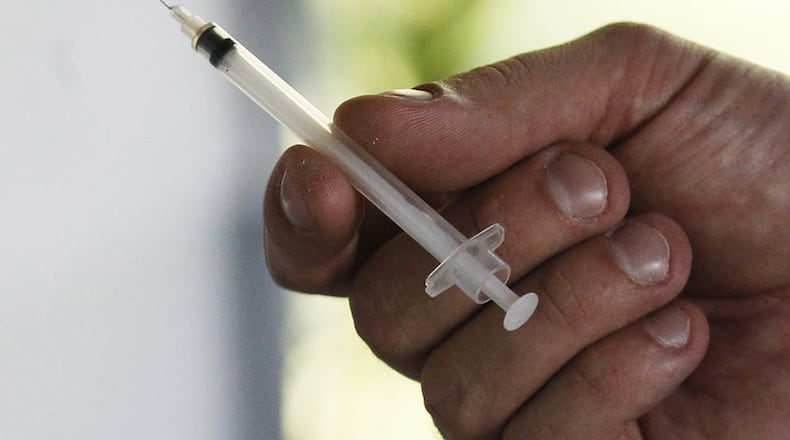While every community in Butler County has been impacted by heroin and opioid addiction, Fairfield is one of the county’s communities impacted the most by deaths from heroin cut with fentanyl.
Fairfield’s number of heroin/fentanyl deaths in 2016 was 12, behind Middletown (52) and Hamilton (47), according to statistics from the Butler County Coroner’s Office.
“Th city recognized the impact the opioid epidemic is having on our country and we want to be proactive,” said Fairfield Councilman Bill Woeste, who formed the Fairfield Opioid Task Force last summer.
The forum will be a community conversation to discuss what solutions may be available to combat the issue.
The public is invited to attend the 90-minute forum beginning at 7 p.m. Oct. 24 at Mercy HealthPlex, 3050 Mack Road. It will feature discussions from those in the medical treatment community, law enforcement and a recovering addict.
OPIOID EPIDEMIC: Who is dying of heroin in Butler County?
“We’re just trying to get the message out to where we can to people who need help, people with family members that need help and community members looking to understand the issue,” said Fairfield spokeswoman Jenny Dexter.
The city’s partners include Mercy Hospital-Fairfield, the Fairfield Community Foundation, the Fairfield Prevention Coalition and the Butler County Mental Health and Addiction Recovery Services Board.
“It’s definitely something that’s been growing in terms of problem of substance abuse, and growing problem of heroin and opioid abuse,” said Deborah Neyer, executive director with the Fairfield Prevention Coalition.
She said the opioid problem is double in Ohio than other states, and the suburban areas, like in Butler County, are not immune to the issue.
Neyer’s organization deals with the youth in the community, and while heroin isn’t a drug they start with, “it is an end result of a lifetime of dabbling in other substances.”
She said there’s an increased perception by the youth that believe there’s an increased ability to access of prescription medication, either in their own home or a relative’s home, such as their grandparents.
According to the Center for Disease Control and Prevention, someone who is addicted to alcohol or marijuana is two times and three times, respectively, more likely to become addicted to heroin. However, someone who is addicted to prescription painkillers is 40 times more likely.
About the Author

